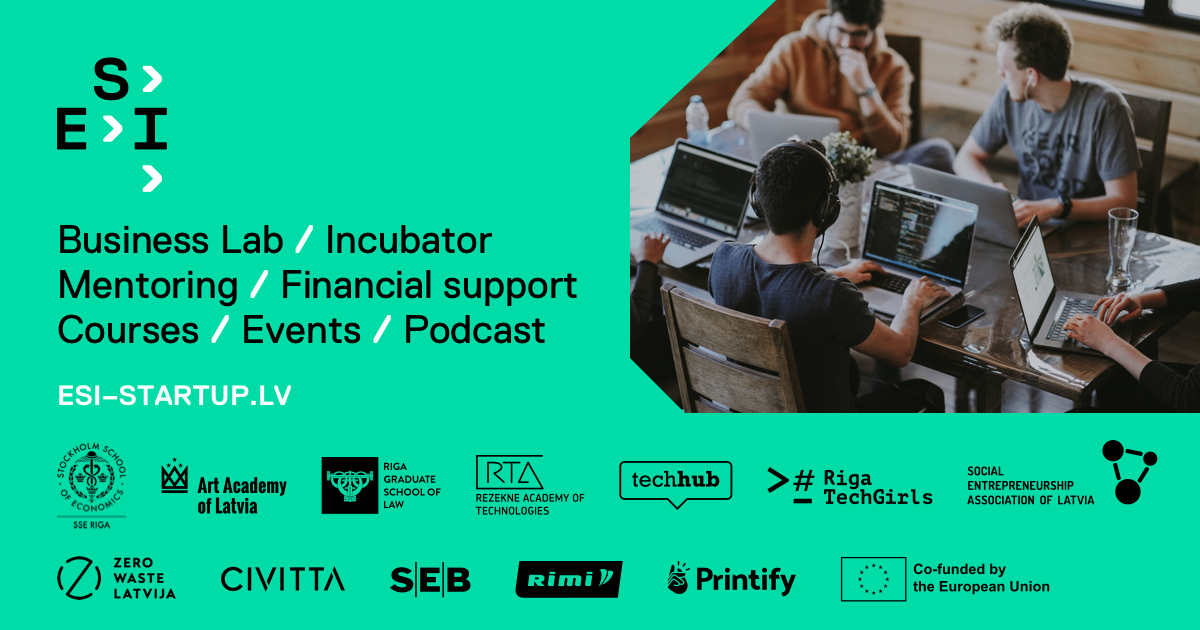ESI – Environmental and Social Innovation
Posted on 01.05.2022.
ESI is a programme aimed at developing and supporting student innovation and entrepreneurship through educational and incubational activities.


The broad goal of the programme is to make a positive impact on society by fostering the creation and growth of new enterprise that will seek to address societal and/or sustainability issues.
While not everyone might see themselves as an entrepreneur, most people will have ideas about how to make their lives and communities that little bit better. Through ESI, we are here to equip you with the skills and the resources to turn those ideas into reality.
About
Whether you already have an early-stage enterprise which needs that extra boost, or you are ready to start building your start-up but need resources to get you going, or, perhaps, you have an exciting idea that could use expert guidance and a way to develop that all-important, initial prototype, ESI has been designed in such a way as to give you the best fighting chance at surviving and thriving in the real world.
Created with core SSE Riga values at heart and perched right at the centre of the local entrepreneurial ecosystem, ESI programme offers students two primary pathways towards new enterprise development – thematic training programmes and the startup incubator.
ESI Incubator
If you already have a validated idea for a new product or service, you may directly apply for a place in the ESI Incubator. Unlike most University-based incubation programmes, ESI startup incubator is run in collaboration with TechHub Riga, giving you the benefit of working with experienced industry professionals who help develop startups for a living.
Participation in the incubator comes with financial support for both you and your idea and, upon successful ‘graduation’, will benefit from continued support by experts from the Latvian Startup Association.
ESI Training Programmes
If you have an idea, or have the drive to take up matters into your own hands, then you are best off applying to one of the ESI training programmes.
This is one of the unique aspects of the ESI programme – we offer five different gateways into entrepreneurship through thematic, accredited education courses.
The courses are convened by nationally and internationally leading experts in their respective fields and focus on:
- Social entrepreneurship and impact investing
- Eco-innovation and responsible management
- Platform strategy for new enterprise
- Female innovation and entrepreneurship
- Lean LaunchPad entrepreneurship (Business Lab).
Workload on these courses ranges between 1 ECTS and 4 ECTS.
Dr. Dmitrijs Kravčenko, Director of the ESI programme and Assistant Professor at SSE Riga says: “There is a skewed perception of entrepreneurship, with unicorns and high-value acquisitions dominating the popular narrative. To be sure, this is one aspect of it, but a larger and, arguably, more important feature that should not be undermined is that entrepreneurship means people not settling for status quo and, instead, taking action to change their lives, and the lives of those in their communities, for the better. To me, this is profoundly inspirational. This is precisely what we want to support with this project – people taking ownership of their individual agency, stepping up, and making an active effort to shape what the world will look like tomorrow”.
Organizers
ESI is a two-year student innovation programme organized by SSE Riga, RGSL, Art Academy of Latvia, Rezekne Academy of Technologies, Civitta, TechHub Riga and (a long list of) other partners. It is co-funded by the European Regional Development Fund, RIMI, SEB, and Printify. ESI brings together a community of over 35 SMEs, centres of scientific excellence, regional and national professional associations, and a wide network of individual experts and mentors.
For more information, please visit: https://esi-startup.lv/
